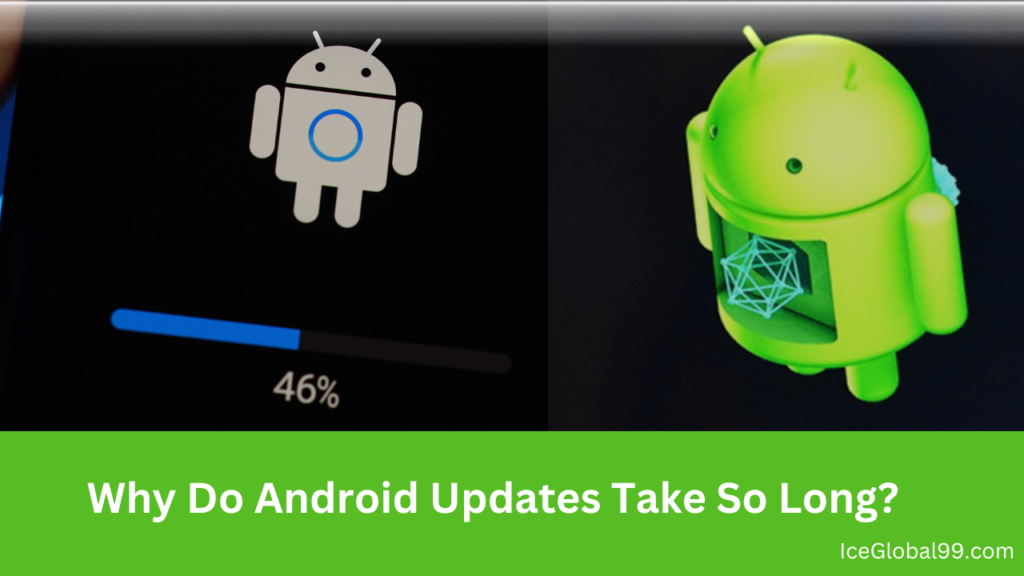As a proud Android user, you might often find yourself wondering, “Why do Android updates take so long?” Android customers wait longer for upgrades, although iOS users receive them almost promptly. Let’s dive into the reasons behind this delay and answer some other related questions to help you understand the process better.

Why Do Android Updates Take So Long?
- Fragmentation:
- Android is an open-source platform used by numerous manufacturers, each with their own customizations and hardware variations. This diversity, known as fragmentation, means that updates must be adapted for multiple devices, each with its unique configurations.
- Manufacturer Customizations:
- Many manufacturers add their own skins, features, and apps to stock Android to differentiate their products. Integrating these customizations with new Android updates takes time, as it involves extensive testing to ensure compatibility and performance.
- Carrier Involvement:
- For devices sold through carriers, each update must pass through the carrier’s rigorous testing and approval process. Carriers often add their own bloatware and features, further delaying the update rollout.
- Testing and Certification:
- Updates undergo multiple rounds of testing to ensure they don’t introduce new bugs or security vulnerabilities. This involves testing by the device manufacturer, carrier, and sometimes even Google itself.
- Gradual Rollout:
- Even after an update is ready, it is often rolled out in phases to monitor for any unexpected issues. This cautious approach ensures that any potential problems can be addressed before the update reaches all users.
What is the process for an Android update to reach my device?
The process starts with Google releasing the new Android version. Manufacturers then customize it to fit their devices, followed by extensive internal testing. For carrier-specific devices, the update is sent to carriers for additional testing and approval. Finally, the update is rolled out gradually to users.
Why do some Android devices get updates faster than others?
Devices in Google’s own lineup, like the Pixel series, receive updates faster because they run stock Android and bypass carrier approval processes. Other manufacturers may prioritize updates for their flagship devices over older or budget models.
Can I speed up the update process for my Android device?
While you can’t directly speed up the official update process, you can ensure your device is running the latest available version by regularly checking for updates in your settings. Alternatively, you can explore custom ROMs, but this comes with risks and can void warranties.
Why do security patches arrive more quickly than major updates?
Security patches are smaller and focus on specific vulnerabilities, making them quicker to test and deploy. They often don’t require extensive customization or carrier approval, allowing them to reach devices faster.
Will Android updates ever get faster?
Google has been working on initiatives like Project Treble and Project Mainline to streamline the update process. Project Treble modularizes the Android OS, making it easier to update, while Project Mainline delivers critical updates via the Play Store, bypassing some traditional delays.
In conclusion, the question “why Android updates take so long” can be answered by understanding the complexity of the ecosystem, from the variety of devices to the layers of customization and testing involved. While the process can be lengthy, these steps ensure that updates are stable and compatible across the diverse range of Android devices. As Google continues to innovate and streamline the update process, we can hope for more timely updates in the future.
